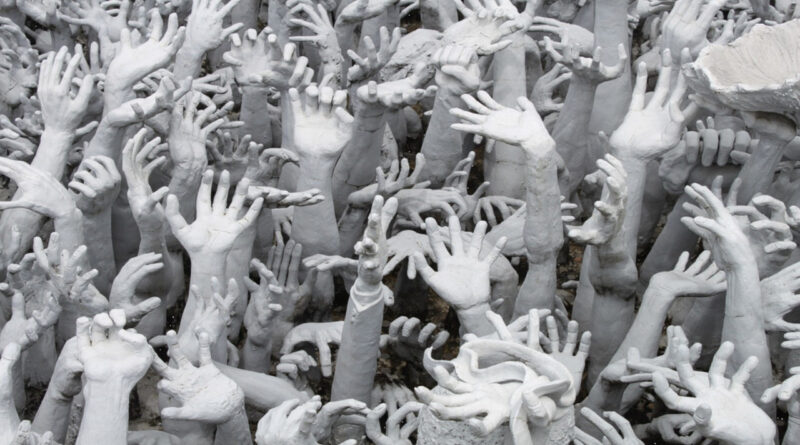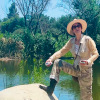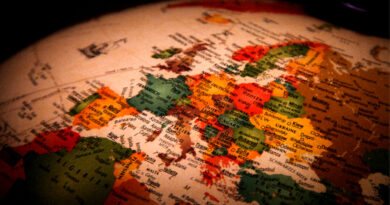Human Natural Resources
We associate the word “sustainability” with the environment, limiting the use of natural resources, and slowing down climate change. It doesn’t apply to us, personally. Or does it?
The Earth has different types of natural resources. Petroleum, coal, or water are limited resources and as such can be exhausted. Other resources such as wind and solar energy, or bamboo are renewable. We can use the latter and because renewable resources replenish themselves, they won’t become exhausted in the foreseeable future. You guessed it: there is a parallel between the brief digression into the topic of natural resources and us. Each of us is a micro-ecosystem. We too have natural resources and our well-being depends on wise management of them.
We have a limited lifespan and throughout our lives, we are vulnerable to diseases, accidents, and injuries. Of course, in addition to a healthy diet and lifestyle, wise health management and regular physicals – which can detect and enable your doctor to treat health problems early – are the best ways to maintain good health. Still, every then and again, any one of us may need not only medical care but actual “replacement parts” and their supply is limited. And it’s here that the word “sustainability” comes in. No matter how healthily you might eat and live, at some point, your life may depend on someone’s tissue, body part, or organ. Now, the ecosystem is interdependent. People are interdependent as well.
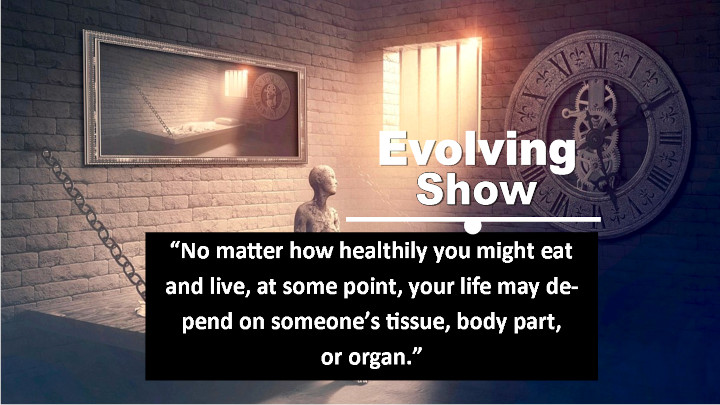
When it comes to organ donation, we are talking about a major surgery performed under general anesthesia, a prolonged recovery, and a lifetime of living with less than a complete set of organs. Such a donation takes courage. It is a sacrifice made by more and more people today, even total strangers to the recipients. To me, these people are heroes because the prospect of living with fewer organs than my body was originally designed to have would worry me.
Living donor organ donation is not the only way to save lives, cure diseases, and help people. A living donor tissue donation (blood, stem cells, or bone marrow) is the other. The main difference between these two types of donations is – yes, I am simplifying! – that once you donate a kidney or a lung lobe (it isn’t true for a partial liver donation) you exhausted a part of your natural resources. When you donate living tissue, you’re donating your renewable resource. Tissue donation requires generosity, but it won’t leave you worse for wear. The life-saving blood or bone marrow you can donate replenishes itself (your body regenerates it); under certain circumstances, the renewal stimulated by the donation is actually beneficial to the donor’s health. There is more, you could donate blood or bone marrow – without the fear of depleting your own resources – several times and save more than one life!
Long story short:
• An organ donation is a donation of a limited natural resource
• A tissue donation is a donation of a renewable natural resource
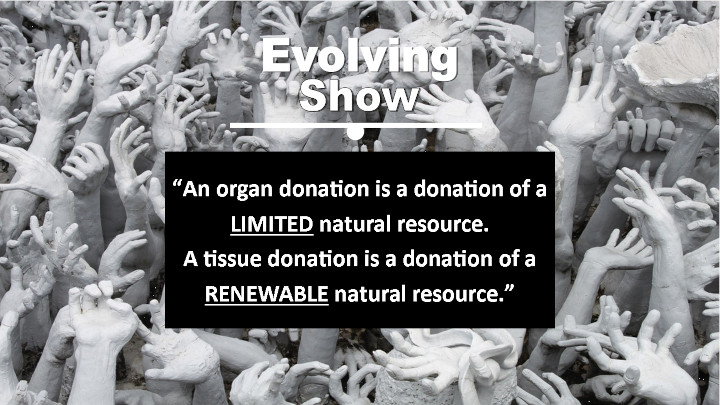
The first one involves risk and is a major sacrifice. The second – not less generous – is an act of sharing what you have to spare. I’m not diminishing the value or importance of tissue donation: it is life-saving. I’m not saying that it is entirely pain- or hassle-free, there is some involved. Just like a kidney or lung lobe donation, tissue donation is sharing and life-saving but without the potential risk of diminishing your quality of life now or later.
There are other ways of looking at living donor tissue donation:
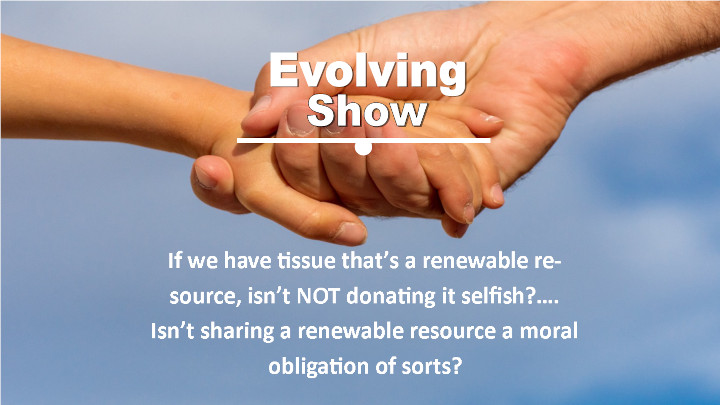
If we have tissue that’s a renewable resource, isn’t NOT donating it selfish?…. Isn’t sharing a renewable resource a moral obligation of sorts?
Should some people die because those who could save them (who are in effect, THE CURE!), don’t know – or don’t care – enough to do so? Wouldn’t it be like dying from hunger in a well-stocked grocery store?….
We don’t control the skin or eye color we’re born with and we don’t control what disease we – or someone we love – are dealt. You, I, or someone we love may at some point depend on a living donor as a cure for an otherwise terminal disease. Finding such a donor may be difficult or impossible because living tissue donation isn’t well understood.
Preservation of natural resources, environmental sustainability, recycling, and repurposing are all buzzwords, today. We use them in reference to the Earth’s natural resources.
We “use” one another all our lives. We are also natural resources and – in the case of living tissue donations – renewable resources.
From where I’m standing it would be advisable to:
Either have every baby’s own tissue or stem cells frozen and stored at birth, just in case
OR
There ought to be a law that would mandate everyone’s tissue be tested for potential use as a life-saving resource with the data stored in some worldwide database (Incidentally, did you know that the compatibility test for a bone marrow transplant involves a drop of saliva and is entirely painless?)
Am I too extreme? I didn’t say that anyone should ever be FORCED to become a donor, just get tested for compatibility. Still, we are peculiar renewable resources: sometimes uninformed, sometimes selfish, and often, just uncaring.
Jane Goodall said:
“You cannot get through a single day without having an impact on the world around you. What you do makes a difference, and you have to decide what kind of difference you want to make.”
She’s got a point. Give it a thought.
This episode of the Evolving Show podcast is available also on:
Apple Podcasts
Spotify
Anchor
Sticher
Pandora
iHeartRadio
To leave a comment scroll down the page. No login required!

